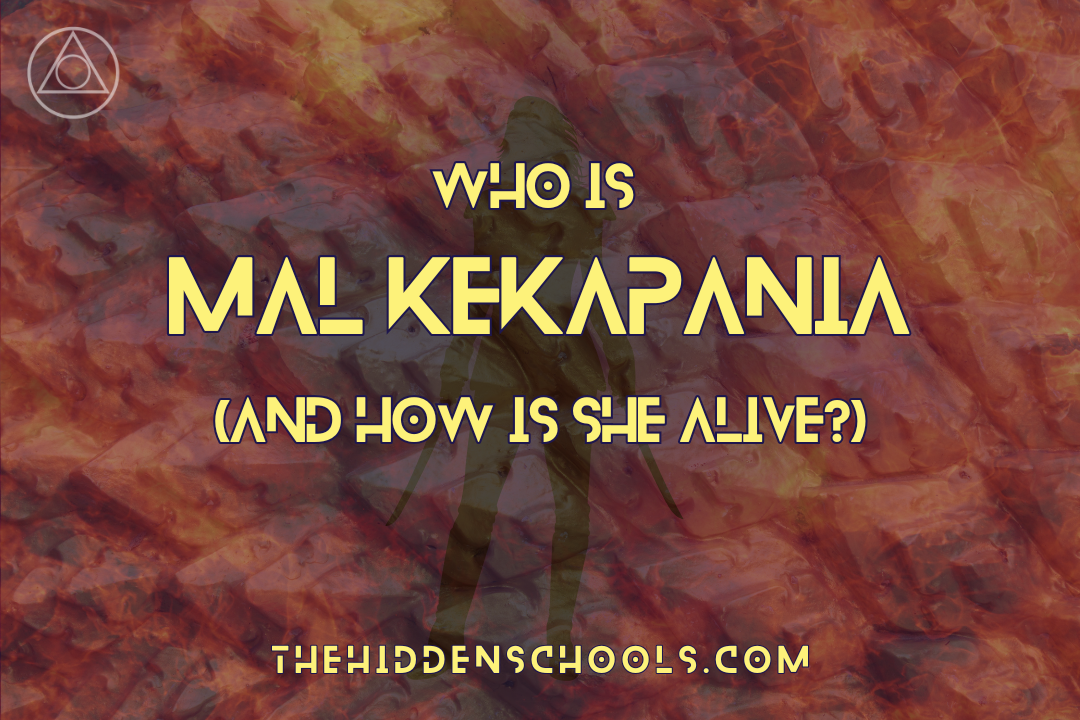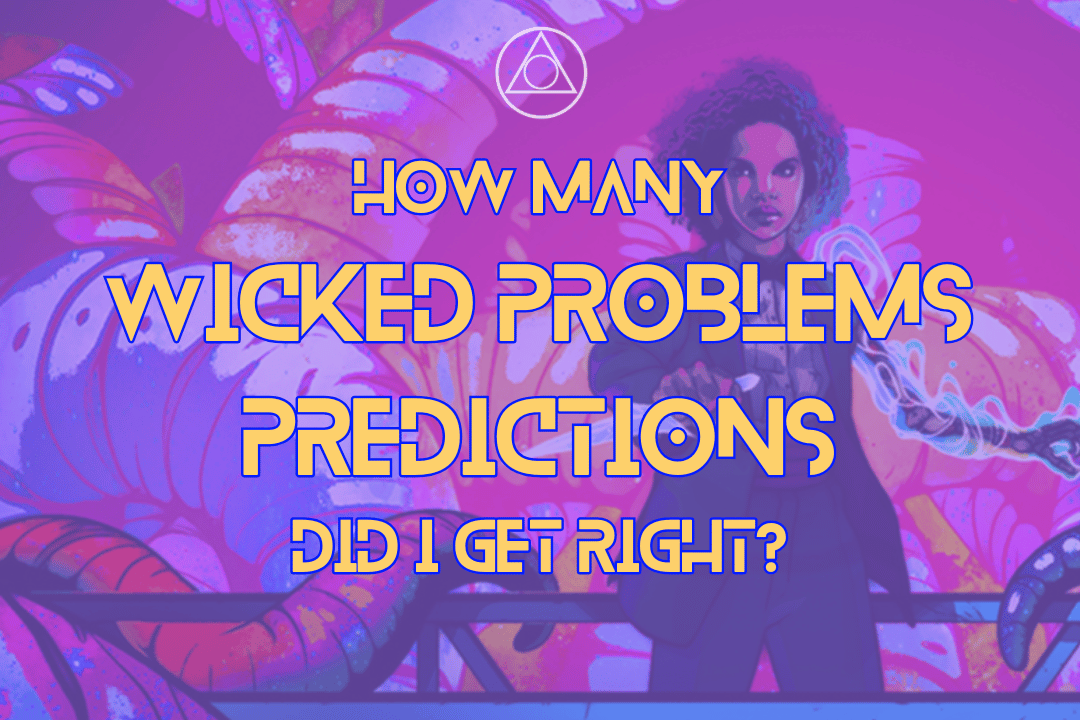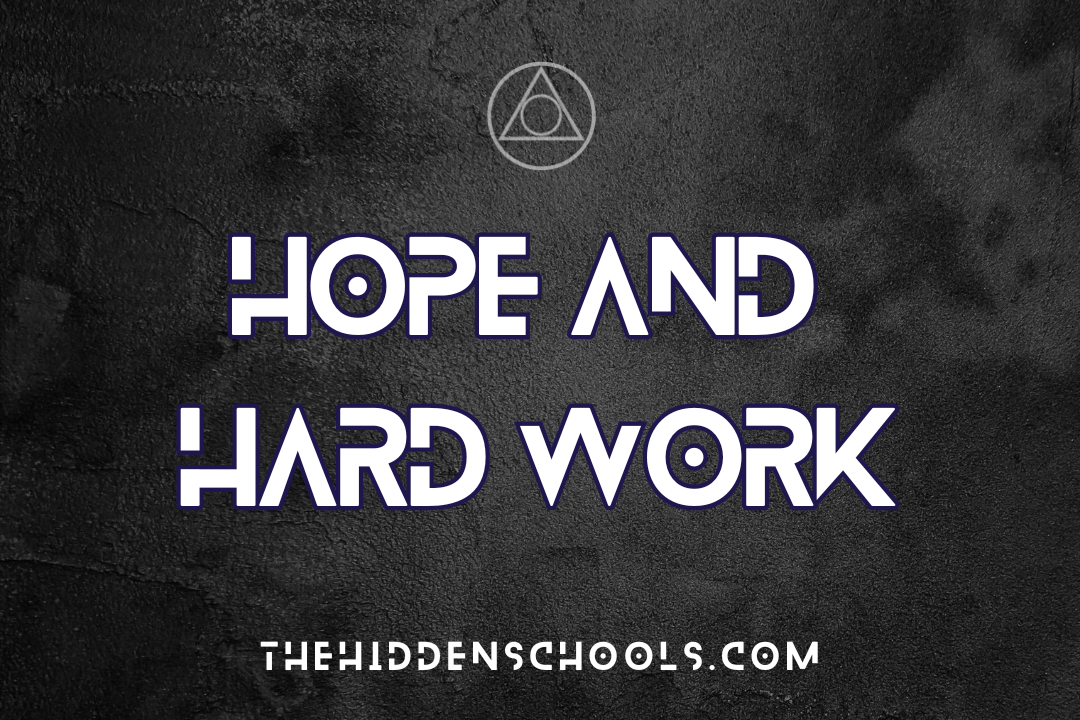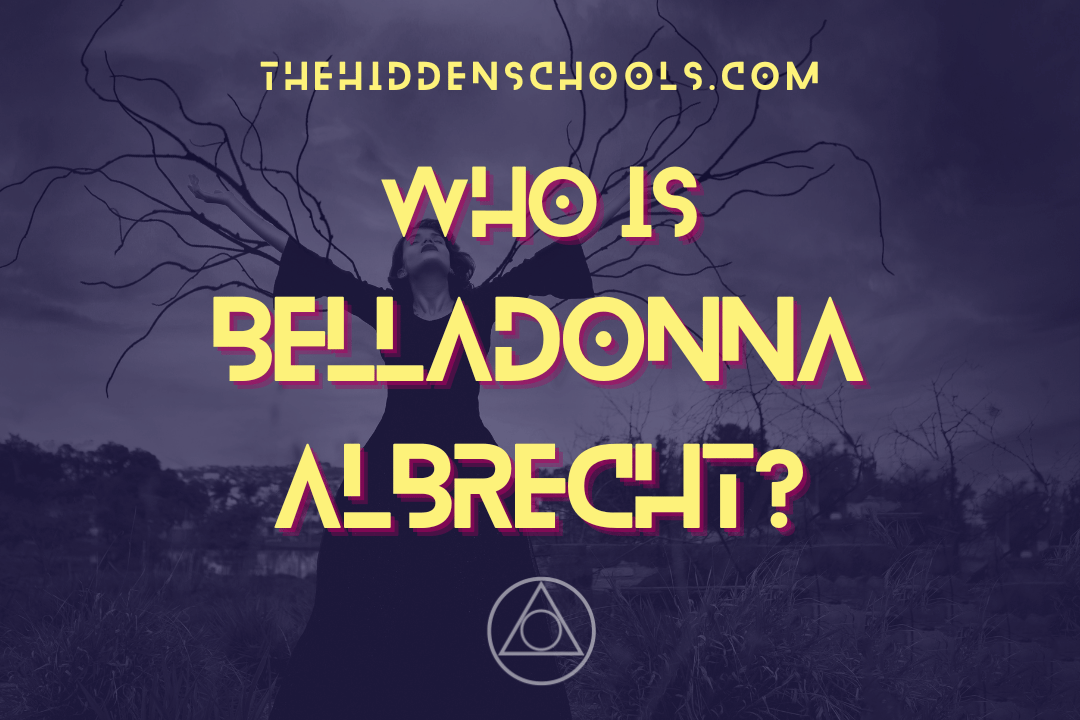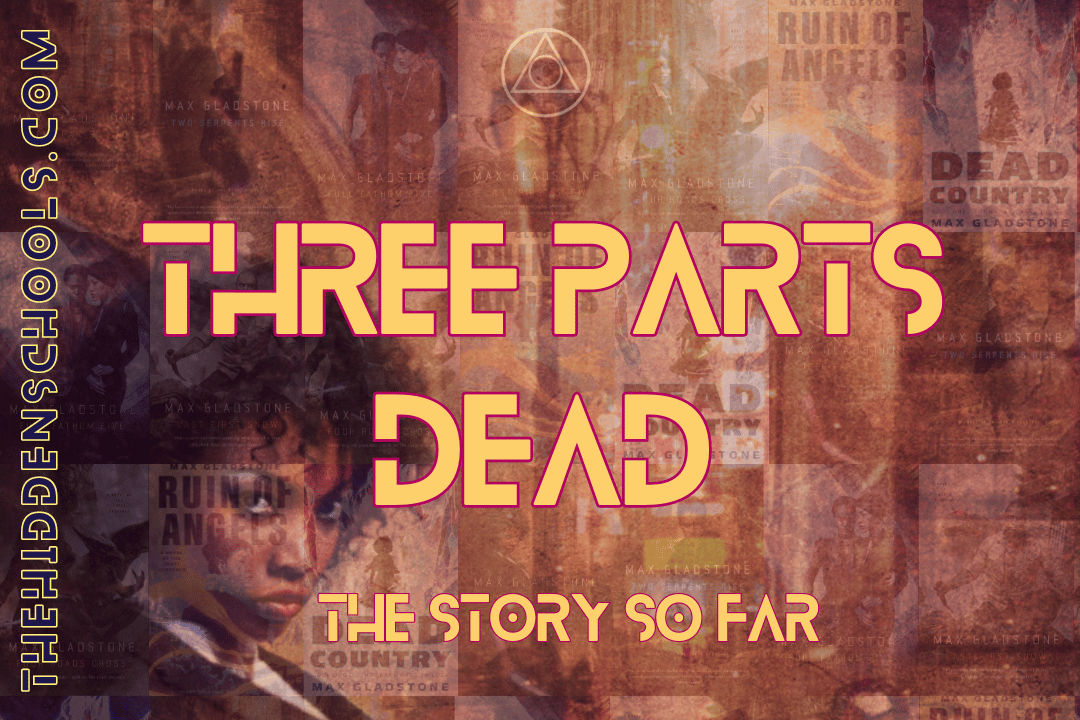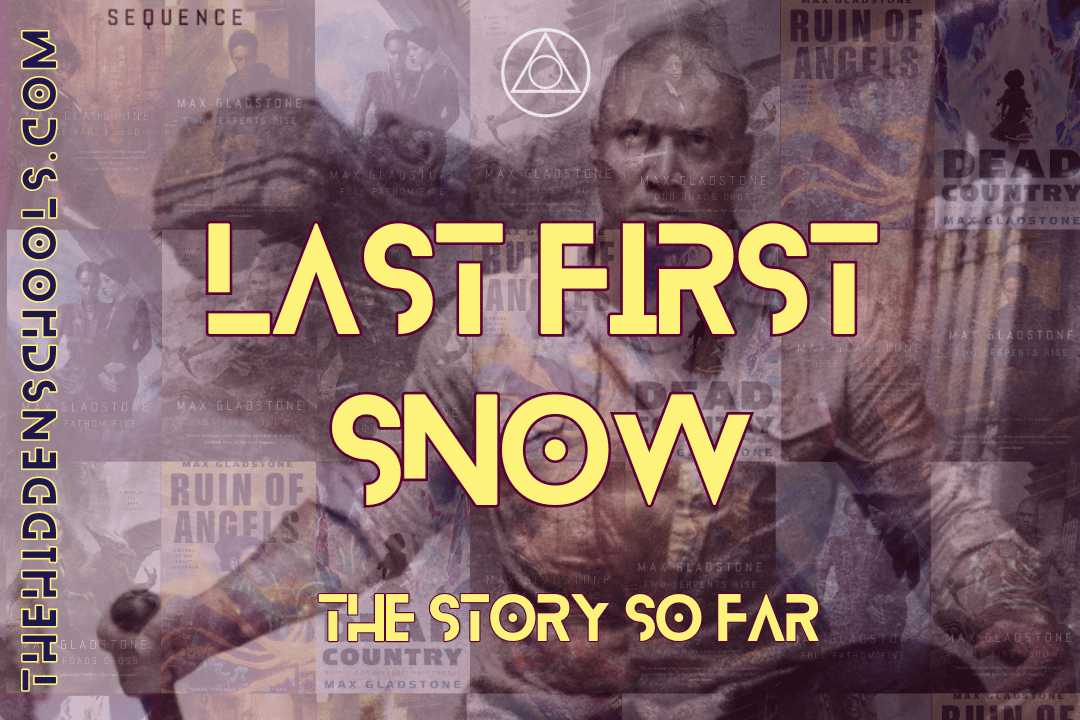Tara Abernathy's Childhood and Upbringing | Craft Sequence Character Deep Dive
Our upbringing shapes us, for better or worse. As Tara herself thinks in Dead Country, “There had been a Tara Abernathy before the world began to shape her—a girl who wanted to travel, to learn, to grow, who wanted to see pyramids and dragons. That girl came from somewhere, from Pa’s stories and Ma’s long memory and their hopes for a daughter who would reach beyond.”
What was Tara Abernathy’s childhood and upbringing like? How did it shape the woman she became?
This article is part of the Deep Dive into Tara Abernathy series, and contains spoilers for all books featuring Tara, particularly Dead Country.
What we knew about Tara’s upbringing before Dead Country
“[Tara] is brilliant, talented, and fierce. She came from a podunk farm town near the Badlands and worked caravans studying with hedge witches for seven years before she reached teh Hidden Schools.”
We learn early in Three Parts Dead that Tara comes from a nothing kind of town in the middle of nowhere; that she left home at 16, not returning until she was quite literally kicked out of the Hidden Schools; that her relationship with her parents is distant; and that she never felt much of a connection with the town or its people – in fact, she and her family were distinct outsiders.
(That last point was slightly retconned in Dead Country, but for the most part this stands).
After she once again leaves Edgemont with Elayne Kevarian at the end of chapter one of Three Parts Dead, we hear only occasional references to her childhood and family – that is, until she spends the whole of Dead Country back in Edgemont following her father’s death. We learn a lot in these brief references, particularly about how Tara discovered her aptitude for the Craft – and was taught to hide it, at all costs.
“Tara’s mom had first warned her to keep hidden. Tara had brought her a fallen star, crackling in her hand. The sky hung thunder-dark overhead, but not so dark as Ma Abernathy’s face. Tara’s mother never hit her, like most Edgemont parents hit their children. Tara had never squirmed on her village schoolroom seat from switch marks. Nor had Ma Abernathy honed a scalpel of guilt like the mothers of her classmates at the Hidden Schools. Concern was her tool.
Tara’d run out into the rain, age ten, beneath a tornado-dark sky. She heard whispers on the wind and singing in the stars, and talked back, sang up, calling to the voices until the storm came, all spinning noise and fire, a solstice festival in the sky. She chased the voices into the fields, through sheets of rain, through broken whipping cornstalks, clothes plastered to her skin, hair a tangle of heavy rings. Then the thunder spoke, and a star fell. She caught it in her hand and brought it home.
Her mother met her on the cornfield’s edge in the thrashing rain, as wet through as she. Her father had run into the fields after Tara and hadn’t yet fought his way out. Tara held the star. It danced as it burned. She didn’t know her mother’s story then, didn’t know about Alt Selene and the siege from which Ma’s people fled, didn’t know that to her mother the fire Tara held was a weed with roots in the guts of their history. Tara only knew that the light sang, and made her blood sing too.
Let it go, her mother said. Let it go and don’t pick it up again.
Tara closed her hands and the fire entered her. Water steamed from her skin and she felt herself burned dry. She fell into her mother, and looking up saw only fear. She was sick for a week afterward, and her parents waited until she got better to talk to her about the future, about small towns and discovery, about hiding. About being anyone but who she was.”
She kept the talent to herself throughout her childhood and adolescence, but her interest and ability didn’t go away. In Three Parts Dead she tells Cat:
“I first realized I had an aptitude for the Craft,” Tara said, “when I was maybe five or six.” Her heels tapped down the hallway in perfect rhythm. “More importantly, I liked it. Liked using it, working it around me. It was almost a religious feeling. I wanted to make a life out of the Craft, so I had to leave Edgemont. Which was fine, because I wanted to do that anyway.”
She talks a bit about her experiences wandering the Badlands learning bits of the Craft from anyone who would teach her, and then her acceptance into the Hidden Schools – but those are stories for another article. We do hear a little more about Tara’s family, her childhood, and Edgemont, but each mention is brief.
“Tara’s parents were teenagers during the Siege of Skeld and the Battle of Kath near the God Wars’ end, and fled to the edge of the Badlands to escape the convulsions of their dying nation.”
“My family left the east for Edgemont during the God Wars.” Tara willed her voice not to shake. “They had good reasons, but they ran, and I think … I think somehow their running away became my running away. I ran from Edgemont for anywhere else, away from everything I knew.”
These quotes, though only passing comments, tell a deep story about what shaped Tara’s family and therefore her life. We learn a lot more about this experience in Dead Country, and will cover it in depth in a future article about Tara’s parents.
Anyone from an immigrant background, or with any kind of generational family trauma, can see what is unsaid here. If your parents escaped from a continental level magical battle as teenagers, what traumas did they experience? How did that shape their adult lives, their parenting, what they passed on to their children? Tara’s parents’ reaction to her having aptitude for the Craft makes a lot more sense when you understand they don’t just view the Craft as a dark power beyond their ken but as a dark power they directly saw and experienced, and which uprooted their lives.
Most Edgemonters, however, seem to view the Craft in the former sense. They fear it as we fear anything we don’t understand, and when Tara returns home from the Hidden Schools we see the consequences of that fear. At first, Tara tries to hide her power and her training. She and her parents invent a story acceptable to their neighbours, and she spends a few months trying to make her way essentially in hiding.
“That evening the Abernathy family sat around their kitchen table and settled on the story they would tell the other residents of Edgemont: When Tara left home at sixteen, she signed on with a traveling merchant, from whom she learned the fundamentals of Craft. The Hidden Schools never opened themselves to her, and at last, tired of dust and long wandering, she returned home. It was a good enough lie, and explained Tara’s undeniable skill with contracts and bargains without stirring up any of the local fear of true Craftswomen.”
When Tara eventually trips up and reveals her power, the Edgemonters come for her with pitchforks and fire. Sure, she was raising the dead at the time, but in a Craftswoman’s world that’s just a Tuesday. This pretty terrible experience was just the latest in a series of events and interactions making her feel like an outsider since her early childhood.
“At age six, Tara had first recognized the divide between her family, refugees who fled west during the Wars, and the native clans of Edgemont with their deep roots in the land. She remembered feeling, as a child, a need to prove something to her classmates. What right had they to look down on her family for hailing from beyond their postage-stamp town? But that memory was likely false. Six years old, she probably felt only confusion: Why don’t their parents like mine? Why don’t they like me?”
Once again, this is lightly retconned in Dead Country, but we’ll get to that later. This reminded me of a quote about my dad’s hometown, where the local word for people who’ve moved in to the area isn’t outsider but “offcomer”, and about where a public figure from the area once said “if you couldn’t trace your family back six generations, you were viewed as a dangerous outsider” (paraphrased, he said it in a radio interview I can’t easily find). If you’re one of the only families with that background, if you’re visibly marked as different, if you have a different custom or language or way of thinking, you can’t fit in whether you want to or not.
For now, we see the shape of the girl who ran away from home in the middle of the night for a risky, itinerant life on a trader’s caravan, learning whatever scraps of magic she could, and eventually being accepted into the most prestigious university of the Craft anywhere around the globe.
Young Tara had a natural aptitude for a magic that in living memory triggered devastating wars, but also makes the modern world run through law and economics and medicine. She grows up as the child of refugees, who escaped said devastating war and put roots down in a small middle-of-nowhere town that doesn’t do that well with outsiders. Her parents fear the power she desperately seeks; this fear mixed with their love for her means they try to get her to hide a key part of her identity, and make her feel like she has to run away. Tara has always known who she is and what she wants, and her upbringing has shaped her into a fiercely independent, determined young woman who will fight for what she wants and believes in.
What we learned in Dead Country
“She had left an eager angry witch-girl, drunk on sweet hope and intimations of power that would have soured if she stayed.”
If we summarised absolutely everything we learned about Tara’s childhood and upbringing in Dead Country we’d run the risk of paraphrasing the entire book. Dead Country is at its heart a character study, meditating on Tara’s journey so far and the woman she’s becoming. She’s at a turning point, brought into sharp relief by her father’s death, and isn’t sure which path is the right one – or whether there’s a right one at all. She sees her younger self in Dawn, learns more about her parents through her work in Edgemont, and sees new sides to them and their choices, sees herself from a different angle through her lover, Connor. Tara’s past and present is reflected and refracted back to her and to the reader.
It should go without saying that we recommend you read Dead Country, both in general and specifically before reading this article. The summary presented below is but a top-level overview.
“You were a bright kid, a brilliant woman, and you always watched your mother and me close enough to see more than we wanted to show.”
Tara’s parents met in Alt Selene during the God Wars; her father came from Edgemont and left for adventure, while her mother’s family had immigrated from the Old World to Alt Selene in the early days of the Wars (remember, the God Wars took place over approximately a century). They experienced great dangers, and ran to Edgemont for safety. This is the slight retcon mentioned in the previous section – it seemed in earlier books that BOTH Tara’s parents were refugees and newcomers to Edgemont, whereas we now learn her father’s family had been there for generations and it was only her mother who was a refugee.
“John Abernathy was from here, Ma replied. She had come from away. She seldom talked about away, as if silence could cover it up, but it was there in the old Glebland stories she told Tara when she was a girl, about rabbits and spiders and other thieves, stories her own parents handed down from their own away. Tara hadn’t realised until much later that her mother’s bearing held a gentle hint of snobbery. Valentine Ngoye’s ancestors had been warriors once and doctors later, first in the Gleb and then, after the God Wars chased them from their home, in Alt Selene, before the Wars followed them across the sea. Her parents raised her for high scholarship and masquerade balls and all the aristocratic whirl of expatriate high society in antebellum Selene. Rebelling against the weight of their expectations, she’d gone hunting the low town for adventure and found John Abernathy, runaway on the make, and they’d spent a few enchanted weeks together before the Wars caught them both.”
Traumatised by their experiences during the Wars, John Abernathy and Valentine Ngoye Abernathy tried to create a safe, small world for Tara. Teachers in the one-room schoolhouse of Edgemont, they educated the children of the whole town and were a key part of town life. Yet, Tara says she was aware that her mother performed the role of schoolteacher and had a different personality at home, whereas her father was less performative – was allowed to be, as he was the local. Tara seems to have been very much her parents’ child – but, perhaps, the parents who took a risk, ran from their home, fell in love during the God Wars, rather than the parents sheltering in their small town and dealing with traumas from those risks and adventures. She describes herself as “voracious, insatiable, and terrified” (page 47), dreaming about and imagining a larger life than she had in Edgemont. Connor tells us about how she seemed from the outside:
“You’d always talk about the weirdest stuff back when we were kids, and act like it was normal, like of course everyone would know what you were talking about. Sometimes your head would be here in Edgemont, sometimes a thousand miles that way, and you never seemed to know the difference.”
A thousand miles that way was nowhere special, but she didn’t push the point. It felt good to sit here beside him and not argue. “The weirdest stuff? Like what?”
“Like, I don’t know, the time Emperor Whoever the Sixth invaded Agdel Lex in the year Nine Eagle, or how some poem was really about Maestre Schatten’s three theories on the under-conscious or, like, geometry.”
“It would have been Emperor Whoever the Second. Later Telomeri dynasties didn’t last long enough to hit sixes and sevens, because the emperors were more or less immortal.”
“See?”
“And they called it Alikand back then.”
Tara never did fit in with other Edgemonters, but it doesn’t seem she and her family were quite the outcasts she describes in earlier books. Rather than being an outsider because of her family background, it appears to have been more because she herself was different and wanted different things. Tara tells us:
“Her memories of Edgemont were memories of distance, difference, of being what she, a kid without much experience of hate, thought was hated. They sensed her a thing apart, and they’d had two options, as any body has for a splinter lodged deep: to consume the outsider, or reject it.”
Which situation is better? To be disliked because your family is different than the others, or because you specifically are? And can a child tell the difference? It wasn’t all bad, but the positive memories are tainted with bad endings.
“Tara remembered growing up beside them, remembered the kindnesses they had shown a fierce and quiet girl, remembered torchlit faces and pitchforks upraised.”
They were kind at one point, it seems. That doesn’t undo later cruelty, but it does recast Tara’s childhood in a different light, a more complex lens.
Tara did try to hide, to an extent. She couldn’t hide her interests, her passion for knowledge and a life bigger than Edgemont, but she kept as much of it to herself as possible. She says she “never let herself want while she grew up here, not out where anyone could see, because the things she wanted set people running, made them light torches, grab pitchforks. But want was in her breath and blood” (page 126).
And we know her parents did convince her to hide her power. Again we hear about Tara killing a cornfield as a child playing with the Craft, and running out to catch a fallen star. We see this as a story about Valentine rather than Tara, hearing that she is “the woman who ran through a rainstorm screaming, chasing a daughter who sprinted before her, heedless and hungry to catch the lightning” (page 39). Yet, they didn’t entirely shut down Tara’s interests. Valentine recounts to Dawn how Tara pestered travelling hedge witches for lessons, and we hear that Tara “played conjurer” and managed to set a fire. This play seemed to involve a sacrifice, which would undoubtedly be alarming for those around her. Tara says she learned her lesson, specifically “don’t use tippy candles for a summoning circle, and always tie up the sacrifice in case he gets cold feet” (page 114). Tara was always an ambitious dreamer. Her room, unchanged since she first left, has bookshelves double stacked and wooden figurines of monsters she would buy from passing caravans. She read adventure novels about griffins, and learned histories and magics.
She was awkward and different. We read that her father was easier and freer with people than her mother or Tara herself, and Tara tried to study what he did and learn his tricks. We know she was scared of the Raiders, and would have been scared of the scorpions migrating through the camp she sets up in the Badlands.
“Inside Tara’s heart there was a kid who recoiled from the scorpion shadows, and she held that kid tight, enjoyed this shivering sign of the distance between them.”
She was scared, terrified, but she left. She had to leave. Tara tells us “She had left an eager angry witch-girl, drunk on sweet hope and intimations of power that would have soured if she stayed” (page 1). Throughout the book she questions whether or not this decision was right. Could she belong to Edgemont, the town of her father? Did she overreact to her neighbours’ fears and dislike of her and the Craft. She questions everything: “Gods, she had hated this place growing up. Hadn’t she? She still did—didn’t she?” (page 143). But you can’t change the past. Tara hated Edgemont, and did the only thing she felt she could: leave. She ran away in the middle of the night, leaving the parents she loved and the town she didn’t.
She ended up at the Hidden Schools, and then Alt Coulumb. And the rest is, of course, the story.
What do you think? Let me know in the comments, on Twitter or whatever it’s called these days. And don’t forget you can subscribe to be the first to hear about new articles and fun projects in the pipeline.


